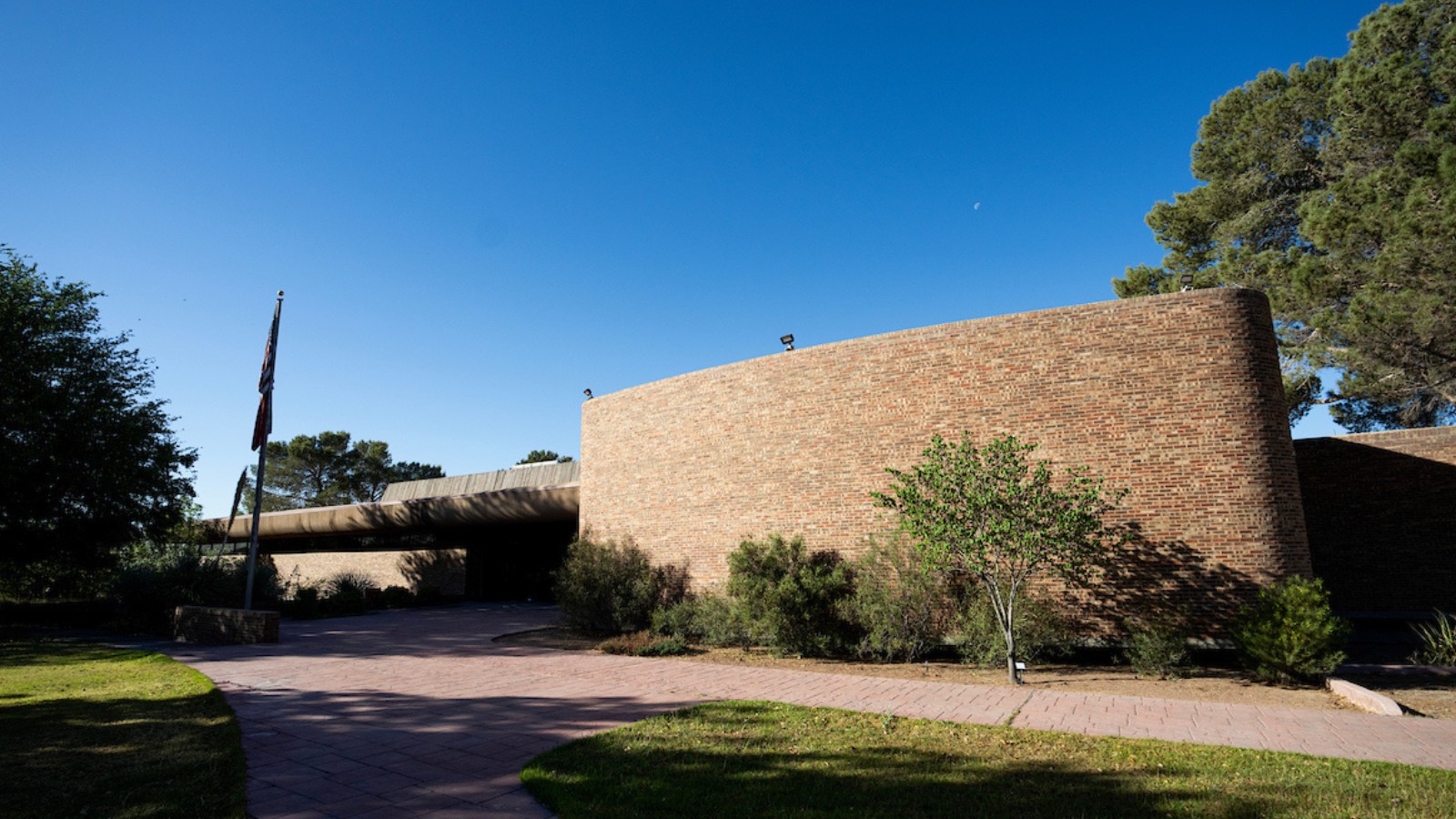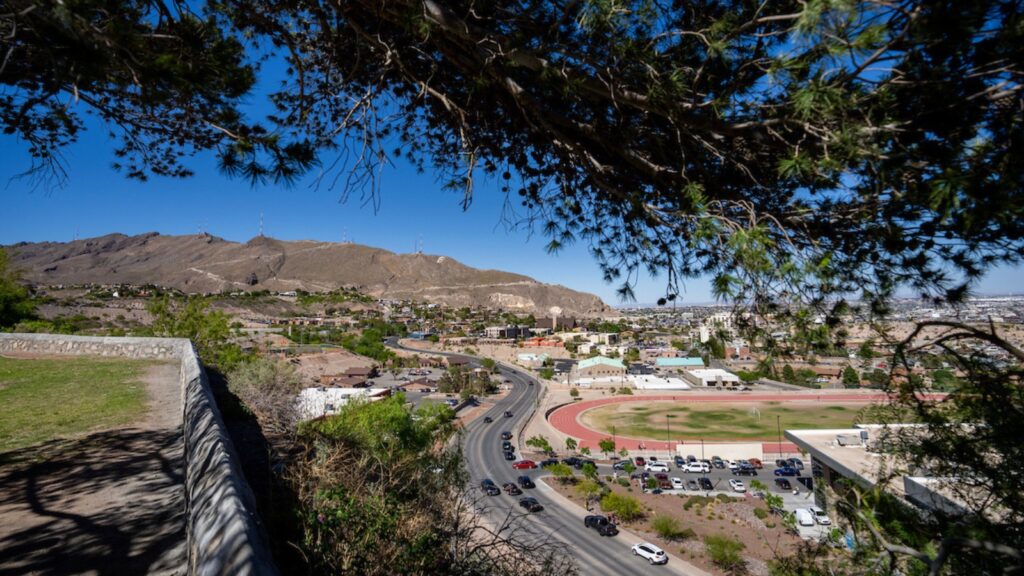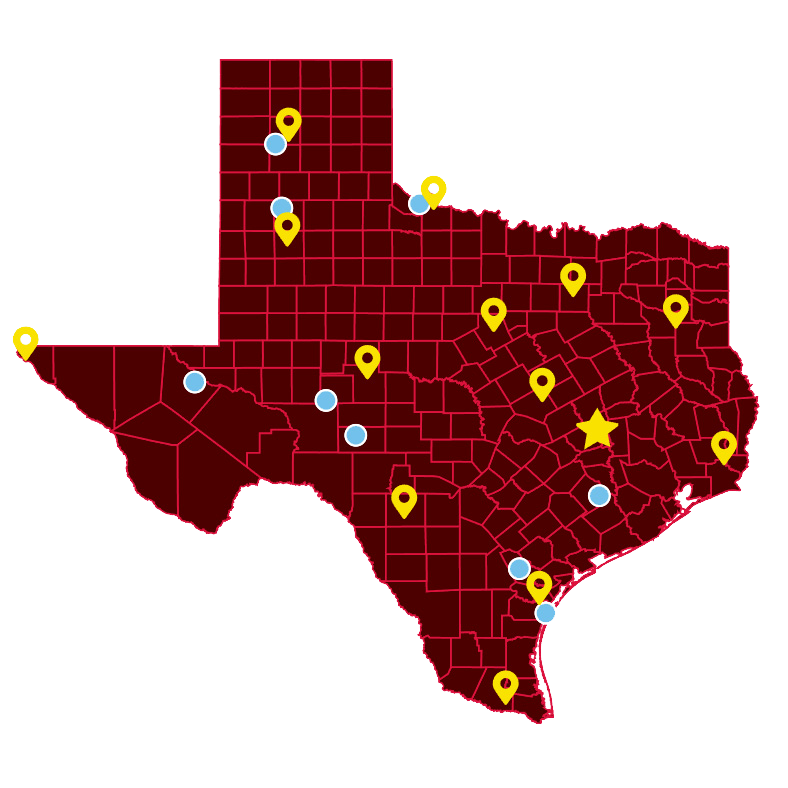
About
The Texas A&M AgriLife Research and Extension Center at El Paso
Research for Far West Texas and beyond

Growing populations, agriculture and urban development in arid, water-scarce conditions
The Texas A&M AgriLife Research Center at El Paso was established in 1942 and expanded in 1976. It strives to address problems arising from El Paso’s unique geography.
Located in arid Far West Texas, the center serves a region that is unique in climate, geography, water resources, urban and agricultural development, demographics and culture. The city is an urban center in the Chihuahuan Desert, situated on the U.S.-Mexico border. It is home to more than 970,000 people, about 96 percent of the population of Far West Texas. Across the Rio Grande is Juárez, Mexico, with a population of 1.3 million.
The region’s frequent droughts and rapidly growing population underscore an urgent need for sufficient, reliable, safe, and cost-efficient water, soil and food supplies. Focusing on the most pressing needs of Far West Texas, the center at El Paso is home to internationally recognized research programs.
Mission
Create, learn, and share knowledge about arid ecosystems, natural resource management, and nutrition to promote economic advancement, healthy residents, and sustainable development in Far West Texas.
Vision
Healthy lives and livelihoods improved through producing affordable and healthy food to meet dietary needs while managing natural resources in Far West Texas.
Internationally recognized AgriLife Research programs at El Paso
- Groundwater and surface water management.
- Crop and landscape plants.
- Soil and water salinity management.
- Reclaimed-water use.
- Conservation program effectiveness.
- Integrated river basin management.
- Evaluation of the economic impacts of technology and policy changes.
Regional needs and collaborations
Among the most important needs for agriculture and urban residents is a reliable, adequate, and safe water supply. Rapid regional growth, frequent drought, competition for existing water, and environmental issues underscore the urgency for finding and implementing effective water, soil, and food solutions. Researchers at El Paso work with irrigation districts, agriculture sectors, water utility providers, community organizations, other universities, government agencies, private industries and the public to address these needs.
One of 13 Texas A&M AgriLife Research and Extension centers across Texas
The center at El Paso is one of 13 Texas A&M AgriLife Research and Extension centers across the state. Each regional center addresses agriculture, life sciences and natural resources issues that are relevant to the food and commodities thriving where we operate. The centers also collaborate statewide on a range of teaching, research and extension initiatives. Each of the regional centers is administrated by Texas A&M AgriLife Research and houses faculty and staff from a range of organizations within The Texas A&M University System.

Looking for Extension services?
The Texas A&M AgriLife Research Center at El Paso is located within Texas A&M AgriLife Extension District 6, spanning Far West Texas. For general inquiries and assistance from AgriLife Extension experts, please contact your county office.